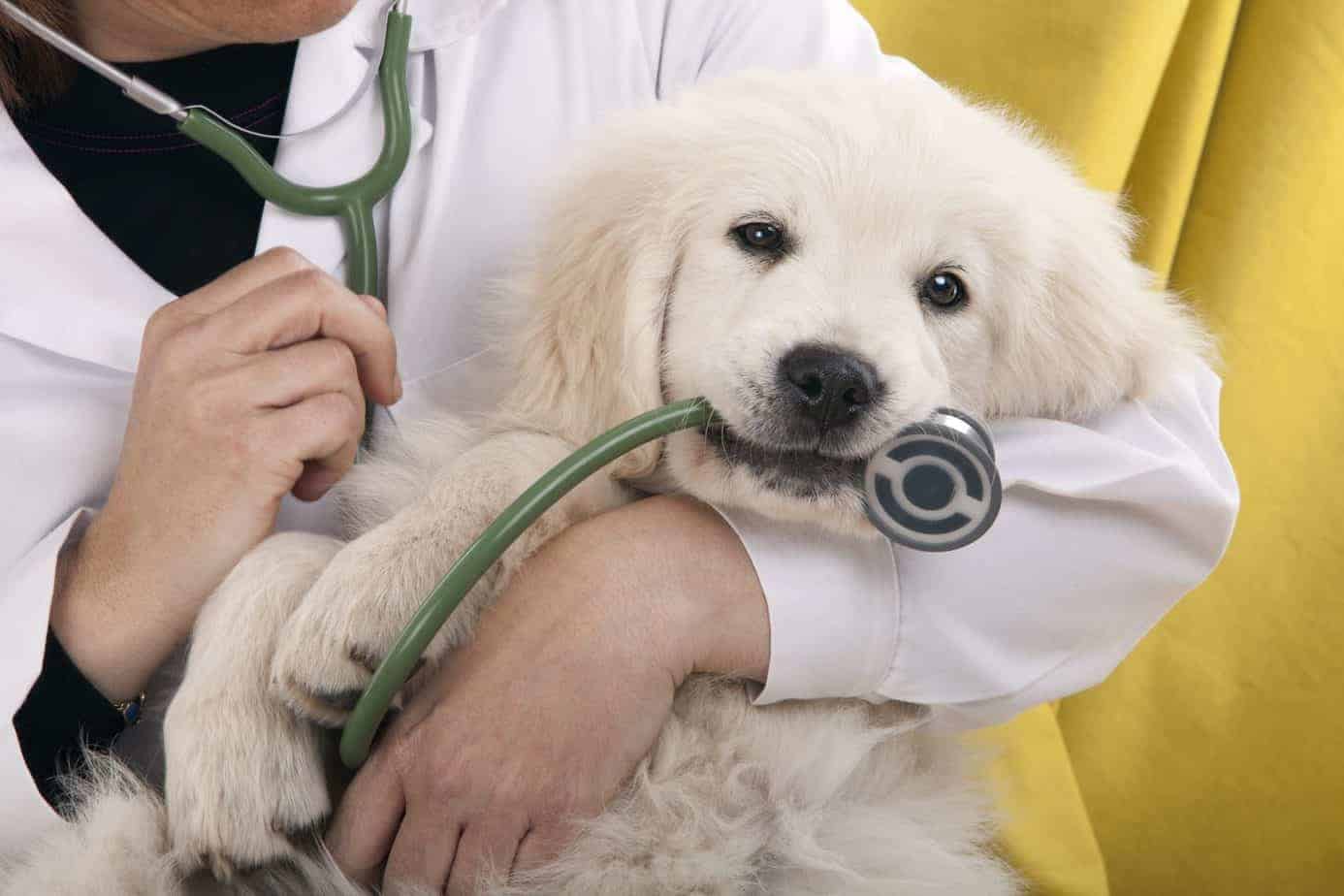With pet insurance, pet owners can rest easy knowing that, in the event of an unplanned illness or injury, it will cover a portion or all of the cost of the covered veterinary care. Financial planning is crucial for pet owners because unexpected medical care for dogs and cats can cost anywhere from $800 to $1,500, depending on where you live. Below, we’ll examine the best free pet health insurance for dogs.
The cost and coverage of pet insurance, like other types of insurance, are highly dependent on your particular circumstances. Our team compared them to determine which partner suppliers would be best for various purposes. It will enable all pet owners to find the insurance and financial security they require, whether a policy with a low price or more comprehensive coverage.
Best Pet Health Insurance For Dogs
We rank companies based on policy coverage, customer service and reputation, prompt payment of claims, policy price, plan customization, and areas where firms excel in assisting you in choosing the best pet health insurance for your dogs. The top options for the best dog health insurance according to the category are listed below by our experts.
- Best value: ManyPets
- Best selection of annual limits: Spot
- Best diminishing deductible: Embrace
- Best added benefits: FetchPet
- Best for an experienced company: ASPCA
Best Pet Health Insurance for Dogs Reviews
ManyPets: Best value
After its founding in 2012, ManyPets started providing pet insurance in the UK and Sweden before expanding to the US in 2021. It is not yet available in Alaska, Florida, Hawaii, Idaho, Massachusetts, Minnesota, Missouri, Oklahoma, or Vermont, though it intends to expand to every state shortly.
ManyPets was the company we chose as offering the best value out of all the ones we looked at because of its mix of inexpensive premiums and thorough coverage. To compare the prices of the policies, our team requested estimates from different businesses for four pets. Then, we looked through a sample policy from each organization to determine what was truly covered. Finally, it became apparent that ManyPets was providing one of the most comprehensive policies at the most affordable price.
Exams, diagnoses, treatments, digestive disorders, fractures, cancer therapies, inherited and congenital problems, prescription drugs, and much more are all covered by ManyPets.
In addition to having good coverage, policyholders can get 24/7 virtual vet consultations from the comfort of their homes and visit any veterinarian of their choice without regard to network.
Spot: Best selection of annual limits
One of the more recent dog-specific pet health insurance dogs is Spot. However, the United States Fire Insurance Company, founded in 1822 and offering pet insurance plans in 2006, underwrites all of its policies.
Most pet insurance providers allow you to alter your policy to obtain the coverage you require at a reasonable price. Your yearly benefit cap is one of the terms you can modify. This cap is the most that a pet insurance provider will shell out for your annual medical expenses.
This condition significantly impacts your premium, and Spot provides pet owners with the best range of yearly limits. A maximum of $2,500, $4,000, $5,000, $7,000, $10,000, or no limit is an option.
You will also have complete control over the financial parameters of your coverage; thanks to the ability to modify your deductible and reimbursement percentage.
ASPCA: Best for an experienced company.
The American Society for the Prevention of Cruelty to Animals (ASPCA); established in 1866, is best known for its work in this area. However, ASPCA Pet Health Insurance has introduced in 2006 thanks to a joint venture with the United States Fire Insurance Company.
The United States Fire Insurance Company has covered over 400,000 cats and dogs over the past 20 years while handling more than 1.6 million claims. So this staff of over a thousand individuals has experience.
Pet owners have a choice between two pet insurance plans offered by the ASPCA; a comprehensive accident and illness coverage or an accident-only policy. For individuals who want to be compensated for routine or preventative care; your policy also allows you to attach an optional wellness plan.
Embrace: Best diminishing deductible
Since 2006, when Embrace sold its first insurance, the company has dominated the market. The business solely provides pet health insurance to guarantee that its clients and their dogs receive its full assistance.
The Embrace pet insurance plan, which has a special benefit that lowers your deductible by $50 each year you don’t receive a claim payout; was our pick for the plan with the best-declining deductible. It implies that you can reduce the out-of-pocket amount before coverage starts if your pet has been healthy for several years and doesn’t need medical attention.
Pre-existing conditions are a key concept to understand when purchasing pet insurance. These are pre-existing conditions or conditions that develop during your waiting period, and many insurance providers won’t pay for them. But Embrace distinguishes between curable pre-existing conditions and incurable. If your pet remains symptom- and treatment-free for 12 consecutive months, it will cover the condition in the future.
After you enroll, Embrace provides a free Medical History Review to assist you in understanding what constitutes and does not constitute a pre-existing condition. With a 30-day money-back guarantee, you can be confident that you have the option to cancel your policy; leave with no out-of-pocket expenses if anything happens that you aren’t happy with.
FetchPet: Best for added benefits
Although FetchPet is a new player in the pet insurance market, its staff is everything. Petplan, a well-known pet insurance provider since 2003, has been relaunched as Fetch. The outstanding coverage that Petplan was known for providing has now been combined with better technology and tools for pet parents; thanks to its rebranding as FetchPet. In light of these factors, FetchPet was selected as the best overall option.
Fetch ForwardTM is one feature that stands out. Fetch ForwardTM is a special technology only available to Fetch pet owners. It uses 150 million data points from 15 years of research on pet health to give you individualized insights and suggestions for enhancing your pet’s health. This benefit should become available at some point this year.
Additional perks include up to $1,000 in coverage for virtual veterinarian visits and up to $1,000 in boarding expenses if you need to stay in the hospital for four or more days.
Free Pet Health Insurance for Dog
You cannot value the life of your four-legged best friend if you’re like most animal lovers. However, giving their beloved dogs the attention they require and deserve can be a significant financial strain for some pet parents. Pet insurance aims to cover high veterinarian expenses, but the premiums aren’t cheap either.
Even though the number of insured dogs increased by 22.5% between 2019 and 2020; most dogs still lack pet health insurance. While it is true that pet insurance could help you save hundreds or even thousands of dollars on emergency care; low-income people and families may find it difficult to pay the monthly charges. They may question whether free dog health insurance exists.
Sadly, the response is no. Dog insurance is not free unless your employer provides it as a voluntarily available benefit. In the following sections, we’ll cover the reasons for this and other ways you can finance pet care.
Why Can’t you Get Pet Health Insurance for Dogs for Free?
Pet insurance differs from human health insurance in that the former is (partially or totally) sponsored by the government. This means that the government pays a portion of your premium to the insurance provider directly, leaving you to pay the remaining balance. Government-funded programs like Medicaid and Medicare may be available to low-income households; but they do not provide coverage for pet costs.
The federal government creates regulations for human healthcare to safeguard the public and advance access to care. On the other hand, state governments control pet insurance. Because of this, the cost of the same insurance plan may vary depending on where you live. Due to the state-by-state regulation, your locality may have different pet insurance regulations, limitations, and protections.
Customers of pet insurance businesses are free to alter their minds at any time, unlike human health insurance, which cannot be changed whenever you feel like changing your coverage. Most jurisdictions require insurers to provide a 30-day money-back guarantee, during which owners can revoke their pet insurance coverage and receive a full return if no claims are made.
Alternatives for Low-Income Families
There are still ways to affordably care for your pet, even if you cannot obtain free dog health insurance. Pet insurance isn’t your only option if you don’t have enough money to pay for your dog’s medical bills.
Start by discussing a payment plan or deferred payments with your veterinarian or the animal hospital. Most of them will cooperate with you to ensure that your pet receives the required medical care.
Additionally, your local Humane Society or animal advocacy group might know of other organizations in your community that help pet parents with veterinary expenses. Additionally, see whether you’re eligible for a grant from a charity.
Another choice is to personally approach family and friends or use crowdfunding websites like GoFundMe to request funds. Veterinary finance options like CareCredit For Pets, community pooled funds like Pawp, veterinary discount programs like PetAssure or AlignCare, and other options should also be considered.
Pet Insurance Discounts you May Qualify for
Even if there isn’t any free pet health insurance available for dogs, you can still choose a plan at a price that works for your budget. Many businesses provide discounts on pet insurance for a variety of reasons, including:
- You are obtaining multiple dog insurance policies from the same insurance provider for every canine family member in your home.
- They are combining various insurance policies, like liability insurance, renters’ insurance, and insurance for traveling with pets.
- Some pet insurance companies, like USAA, AARP, and Costco, only offer members discounts.
- Military discounts from companies like Armed Forces, Embrace Pet Insurance, etc., for active-duty personnel and veterans.
Conclusion
Because it’s challenging to effectively explain pricing to all potential consumers when each policy is tailored specifically for your needs and history, insurance companies often avoid revealing pricing information.
So that you may accurately understand what coverage your pet will receive and how much a policy will cost, we advise choosing the firms on our list that stand out to you and submitting a free estimate with them.
Frequently Asked Questions
Do dogs really need insurance?
Consider pet insurance if you own a pet. Pet insurance could save you thousands of dollars if your pet becomes sick or hurt, even if you think you have enough money to pay for vet bills. Without insurance, your out-of-pocket expenses may mount up significantly, particularly if you have several dogs.
What does insurance cover on a dog?
What does pet insurance cover? The majority of pet insurance policies typically pay for unexpected illnesses, accidents, surgeries, medications, tests, and diagnostics, and emergency care and exam fees.
How much should you spend on pet insurance dog?
According to the North American Pet Health Insurance Association, plans that cover accidents and illnesses cost an average of $50 per month for dogs and $28 per month for cats.
Can the vet keep my dog if I can't pay?
Fortunately, it’s a fallacy that if you can’t pay your fee, the vet will take your pet away. Dr. Bonk told The Dodo, let’s dispel a myth that pet owners have: Vets cannot seize animals for unpaid vet bills. Therefore, the vet cannot hold your pet if you are unable to pay your charge.






